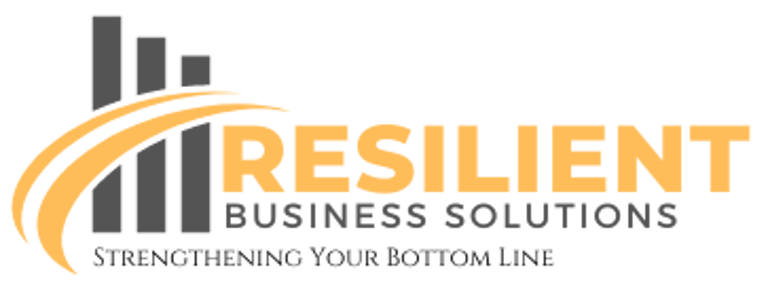Tax Preparation Tips for Small Businesses: What You Need to Know
Discover essential tax preparation tips for small business owners, and learn how professional services can simplify the process and ensure compliance.
4 min read


Understanding Tax Obligations for Small Businesses
Small business owners have a bevy of tax obligations that require careful management and adherence to ensure compliance and the financial health of their enterprise. Chief among these responsibilities is the federal income tax, which encompasses all earnings from business activities. Small businesses are typically classified as sole proprietorships, partnerships, or corporations, and each entity type has distinct tax requirements that must be understood and followed rigorously.
Another critical aspect for many small business owners is the self-employment tax. This tax covers Social Security and Medicare contributions for individuals who work for themselves. The self-employment tax rate is currently set at 15.3%, divided into 12.4% for Social Security and 2.9% for Medicare. Knowing how to calculate and pay this tax is vital for avoiding penalties.
Sales tax represents another layer of complexity. This tax applies to the sale of goods and some services, varying significantly by state, and sometimes even by city. Small business owners must register for sales tax permits, collect sales tax from customers, and remit the collected taxes to the appropriate state agency regularly. Being versed in the sales tax regulations applicable in your state is essential for compliance.
Employment taxes also figure prominently in the roster of obligations for small businesses that have employees. These taxes include federal income tax withholding, Social Security and Medicare taxes, and federal unemployment (FUTA) tax. It is imperative to withhold the correct amount of taxes from employee wages and make timely payments to avoid potential legal issues.
Staying compliant with the IRS requires adherence to various deadlines. Federal income tax returns for most small businesses are typically due on April 15th of each year. Self-employed individuals usually need to pay estimated quarterly taxes to avoid underpayment penalties. Quarterly deadlines are January 15, April 15, June 15, and September 15. Calculating estimated taxes involves projecting your annual income, deductions, and credits, then dividing this estimated tax liability into four equal payments.
Overall, understanding and meticulously managing these tax obligations ensures that small business owners remain in good standing with tax authorities. Proper planning, record-keeping, and seeking professional advice when necessary are key strategies to successfully navigate the intricacies of small business taxation.
Effective Record-Keeping and Documentation
Maintaining accurate and organized financial records is essential for small businesses. Proper record-keeping ensures that all income and expenses are documented, which is vital for precise tax preparation and simplifying the auditing process. The significance of diligent record-keeping cannot be overstated, as it provides a clear picture of your business’s financial health and helps avoid potential legal issues.
Begin by keeping all receipts, invoices, bank statements, and payroll records. These documents form the backbone of your financial history and must be stored systematically. Categorizing receipts by type and date, maintaining detailed invoices for all transactions, regularly reconciling bank statements, and meticulously recording payroll data are crucial steps. Each record should be kept for at least seven years, as per IRS recommendations.
Effective record-keeping methods can vary. For some, physical filing systems may suffice, though these can become cumbersome and space-consuming. Digital solutions, on the other hand, offer streamlined and efficient alternatives. Scanning and storing documents electronically on a secure cloud service can save significant physical storage space while ensuring that records are easily retrievable.
Account software like QuickBooks, Xero, and FreshBooks come highly recommended due to their ability to automate and integrate various bookkeeping tasks. These platforms can synchronize with your bank accounts, track expenses in real time, generate accurate financial reports, and simplify payroll management. By using such tools, business owners can save time and reduce errors, allowing for more focused business operations.
Moreover, robust record-keeping practices are invaluable in the event of an audit. Accurate and detailed records help substantiate your tax filings, reducing the likelihood of discrepancies or misreporting. This can significantly alleviate the stress and potential financial repercussions associated with audits.
In conclusion, good record-keeping is a proactive measure that supports both routine financial management and compliance with tax obligations. Implementing systematic practices and leveraging accounting software can lead to more efficient tax preparation, ensuring that your business remains organized and audit-ready.
Leveraging Professional Tax Preparation Services
Small business owners stand to gain significantly from enlisting the expertise of professional tax preparation services. One of the primary advantages is the identification of potential deductions and credits that might be overlooked by those less versed in the intricacies of tax laws. Accountants and tax professionals are adept at navigating these complexities, and their expertise can result in substantial tax savings.
The process of working with a tax professional typically begins with selecting a reputable service. It is crucial to conduct thorough research, seeking referrals and reviewing credentials to ensure the chosen professional is credible and experienced. Qualification criteria such as certifications (e.g., CPA, EA) and membership in professional bodies (e.g., AICPA) can serve as good indicators of their standing.
Upon engaging a professional, small business owners will provide them with detailed financial records, sales receipts, expense accounts, and any relevant documentation. The tax preparer will then analyze the provided information, identifying potential areas for tax savings. This collaboration allows for a tailored approach to tax preparation that aligns closely with the specific needs and circumstances of the business.
Case studies reveal the tangible benefits of utilizing professional tax services. For instance, a small retail business saw a 15% increase in its deductions after hiring a seasoned tax accountant, leading to greater capital availability for business growth. Another example involves a start-up that was able to claim valuable tax credits for research and development, thanks to their accountant’s proactive measures.
Outsourcing tax preparation does more than just ensure compliance and accuracy. It significantly reduces the time and stress associated with tax season, enabling business owners to concentrate on core operations. Professional tax services provide peace of mind, knowing that their tax obligations are being handled efficiently and in accordance with the latest regulations.
When You Are Ready
Ready to simplify your business finances? At Resilient Business Solutions, we’re here to take the stress out of managing your books so you can focus on what you do best—growing your business. Whether you need help with bookkeeping, invoicing, or managing payables and receivables, we’ve got you covered. Contact us today to learn how we can support your business with reliable, expert financial services. Let’s build a resilient future together!
Strengthening Your Bottom Line
Customized financial support to empower your business success.
Get Our Free 50+ Page Small Business Success Guide Now
© 2024. All rights reserved.
